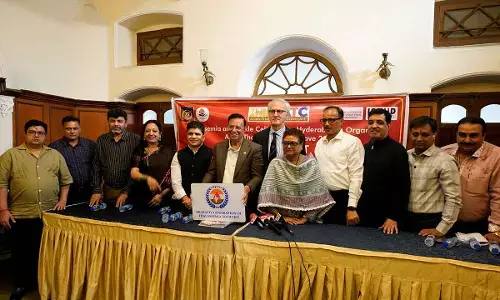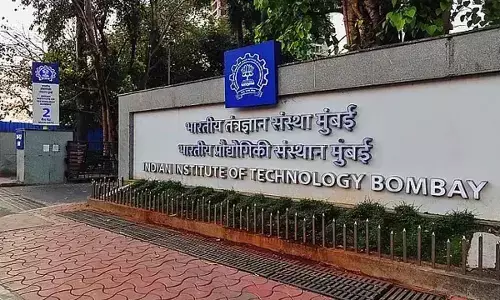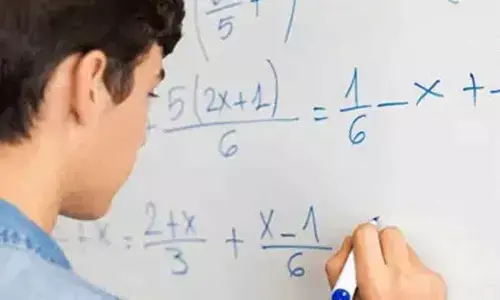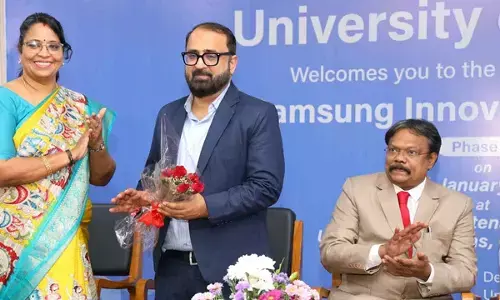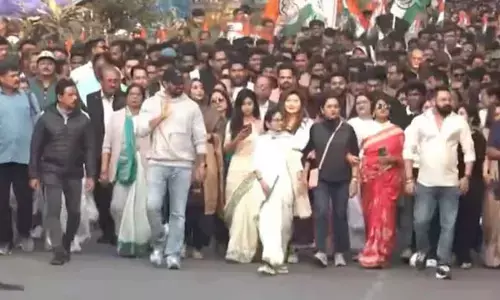Probe into exorbitant poll spending
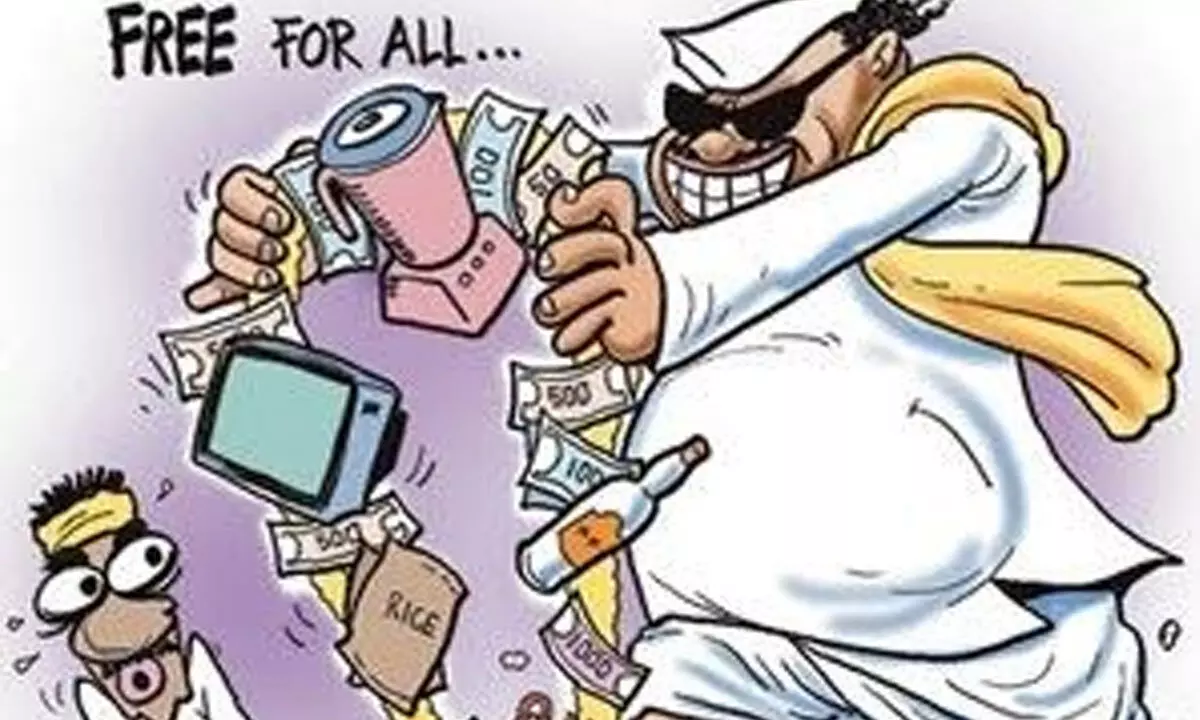
With the announcement of the schedule for General Elections to the 18th Lok Sabha by the Election Commission of India (ECI) two months ago, spread over two months and a half in seven phases, the ongoing ‘Festival of Democracy’ that cut across ethnic, linguistic, regional, and religious barriers commenced, and is half way through.
With the announcement of the schedule for General Elections to the 18th Lok Sabha by the Election Commission of India (ECI) two months ago, spread over two months and a half in seven phases, the ongoing ‘Festival of Democracy’ that cut across ethnic, linguistic, regional, and religious barriers commenced, and is half way through. The first three phases of elections (19 April, 26 April,and 7 May) were over. The next phase, including in Telangana, is on Monday, the May 13, 2024. Final three phases are on May 20 and 25, and June 1. The total electorate in the country is amazing 97 crores (543 constituencies).
‘Voter turnout in the first three phases was 66.14% (102 constituencies), 66.71% (88 constituencies), and 64.4% (93 constituencies), showing significant dip of 4%, 3% and 3% respectively compared to the 2019 elections. ECI faced severe criticism over its inordinate delay in publishing voter turnout percentages of the first two phases, after revision for four days in its mobile application, and for not releasing final data until April 30. It is normal for ECI to revise voter turnout numbers, though, such an instance seldom happened before. Lack of transparency on the real number of votes cast in each constituency and apprehensions of manipulation of results were the concerns expressed.
The Article 324 of the Constitution of India bestowed relevant powers, duties, and functions upon ECI to hold ‘General Elections’ whenever due. Accordingly, the ECI made comprehensive preparations for “free, fair, participative, accessible, inclusive, transparent, and peaceful” conduct of elections, with meticulous planning of every aspect in advance, to ensure ‘fearless participation of electors’ especially in vulnerable places, but with a ‘Rider.’ The ECI mobilised the election machinery of more than 12 million officials, the ‘biggest human management exercise’ in the world, and imparted them ‘systematic training’ for flawless conduct of elections. In view of the arduous and difficult journey that polling teams have to undertake to ensure that no voter is left behind, ECI doubled the remuneration of polling officials heading for election duty in remote and difficult areas. Fair Enough.
Provisions of ‘Moral Code of Conduct’ (MCC) a ‘necessary evil’ in the conduct of elections, are made applicable to the contesting candidates, political parties, and government. Election expenses ceiling with a ‘Maximum Limit of Rs 95 lakh per Lok Sabha Candidate’ was fixed besides making it mandatory to pay by ‘Crossed Account Payee Cheque or Draft or by RTGS/NEFT etc., linked with the bank account of the candidate opened for election purpose, if the expenditure exceeds Rs 10,000. ECI’s endeavor to promote equity and ensure quality of the electoral system with the objective of upholding democratic values and principles is nonetheless laudable.
Despite periodical corrective measures, why the largest democracy went wrong is a million-dolor question. For instance, the visible effect of MCC, like random, infrequent searches, and confiscation of transportation of cash, gold, liquor etc., has been felt by real offenders and also by genuine public. Flying squads and video teams have been querying and quizzing people who are caught. But the question frequently asked by citizens is why not the details of individuals caught along with value, and the end result, are explicitly displayed in the public domain.
‘Unfolding Indian Elections-Journey of the Living Democracy,’ a book published by ECI in January 2017, documented exciting anecdotes on Indian Elections. Spending money or buying votes was an anathema in the first general elections held during 1951-52, which global community voluntarily witnessed with great interest.
Lengthy electioneering process causes exorbitant expenditure by candidates and political parties, often multiple times over and above mandated by ECI. Dr N Bhaskara Rao, Chairman, Centre for Media Studies (CMS), engaged in tracking election spending for over 35 years, revealed an astounding harsh reality that the 2024 Lok Sabha Elections are on track to break all past records and become the ‘Most Expensive Electoral Event in the world’!!!
According to this internationally renowned poll expert, the estimated expenditure would be a staggering Rs 1.35 lakh crore, more than double the Rs 60,000 crore spent in 2019!!! This surpasses the expenditure of 2020 US elections, which stood at $14.4 billion or Rs 1.2 lakh crore. This comprehensive expenditure encompasses all spending, direct or indirect, related to polls, including that by political parties and organizations, candidates, government, and ECI.
Expenditure includes the ‘Electoral Bond Disclosures,’ spending on ‘Pre-Election Activities’ which are integral to campaign that normally takes place prior to announcing voting dates, and spending by parties and candidates towards political rallies, transportation, hiring of human resources, and even on ‘Horse-Trading of Political Leaders.’ Huge spending’s roots are to be traced in the presence of crorepathi candidates. For instance, about 600 crorepathi candidates are contesting in just third and fourth phases, including one who declared assets worth over Rs 5,700 crores!!
According to Dr Rao, parties and candidates often find ways to circumvent spending restrictions imposed by MCC, a clear indication of growing ‘Reliance on Money Power over Ideology’ in the Indian politics. Rao lamented transformation from ‘Ideology-Driven Election Campaigns’ to ‘Chauvinistic Apparatuses.’ Six key undesirable trends in elections, identified by Dr Rao are: prolonged pre-poll activities, affluent candidates’ dominance, political crossovers, manipulation through various channels, lack of fair play, and power dynamics favoring incumbents.
Remarkably, and laudably, Telangana Chief Minister Revanth Reddy, in an interview to a Telugu channel, expressing serious, genuine, and conscious concern on the source of funds flow to BRS and BJP leaders KCR and Modi, in organizing ‘frequent public meetings’ with huge paraphernalia, spending large amounts of money, preferred either a ‘Fact-finding Committee’ or an ‘Enquiry Commission’ with ‘Supreme Court Sitting Judge’ to probe excessive expenditure by candidates, including electoral bonds and social media expenditure. Revanth Reddy made it clear that he and his party too are ready to welcome such a move, if Modi agrees to his suggestion. Let ECI take lead on Revanth Reddy’s sincere suggestion.
India has constitutionally guaranteed independent Election Commissioner (ECI), who can be removed only through parliamentary impeachment, since ‘day one’ when the Constitution was adopted on November 26, 1949. It is, however, unfortunate that ECI shoulders its responsibility only during elections and seldom exhibits its authority and responsiveness, like checking indiscriminate defections when elections do not take place. Is the gap period a ‘Rest Time’? Two significant, creditable, and ,perhaps, reasonably successful initiatives of ECI are establishing the ‘India International Institute of Democracy and Election Management (IIIDEM)’ and ‘Systematic Voters’ Education and Electoral Participation Program’ (SVEEP) to endeavor to promote voters’ participation, voter education, voter literacy in India and contribute to developing stronger democratic institutions.
Well, it is high time for serious consideration to bring conscious electoral reforms for making an effective and efficient difference by introducing ‘Anytime, Anywhere Voting’ system through ‘Permanent Social Security Number Voter ID Card’ by the ECI. Instead of ‘Earmarked Fixed Booth,’ voter shall be given an ‘Exit option’ to vote ‘Anytime, Anywhere’ including outside the constituency, district, and state.
ECI should regain its credibility and send a strong message to world community on the distinctiveness of elections in the ‘Largest Democracy.’ For our part, let us all exercise our ‘Right to Vote’ and take part in building a stronger democratic nation.








